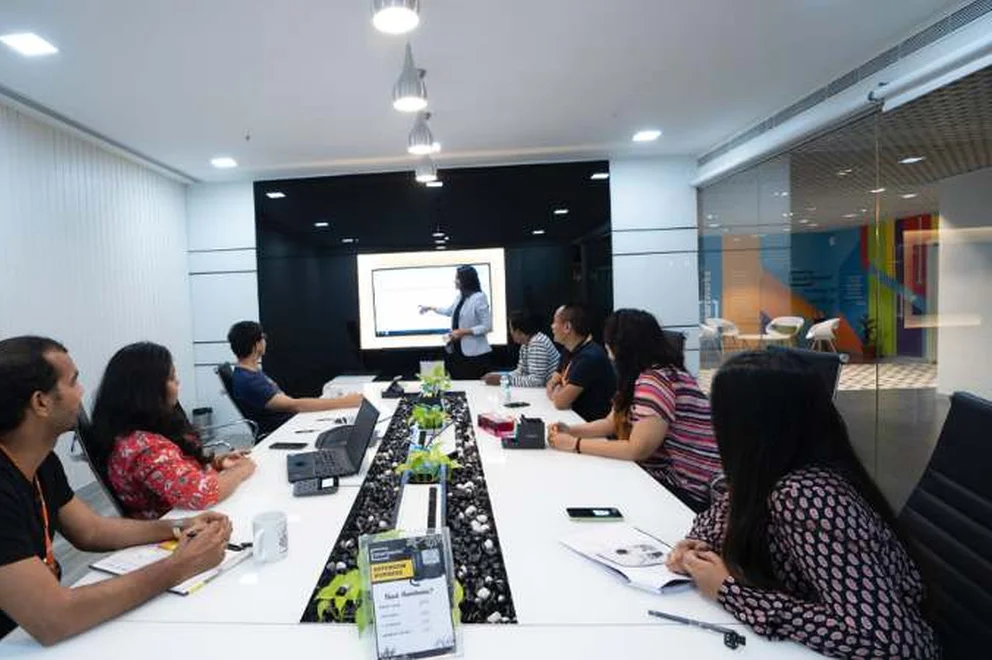Why You Need Continuing Professional Development
Wed 25 May 2022
Continuing Professional Development (CPD) is any type of learning that you take part in which increases your knowledge, understanding and experiences for your professional role.
Why is CPD important?
Continuing professional development can have different levels of importance depending on your job role and career aspirations, the most common reasons across sectors are:
CPD provides an opportunity to analyse skills
Continuing professional development gives you the opportunity, incentive and drive to truthfully analyse your capabilities and confidence across the necessary skills to succeed in your role. Having a clear view of your strengths and weaknesses can be crucial in many situations whether it’s determining which projects you’re best suited for to achieve success or providing thoughtful answers in job interviews.
CPD fills gaps in skillset
Once you know where you need to improve your skills, the continuing professional development process can help you fill those gaps with detailed, subject-specific training. This can not only improve your overall abilities but also your confidence and efficiency.
CPD updates and refreshes knowledge
Many job roles, particularly those that handle various legal matters, require individuals to stay up to date with the latest rules, regulations and practices. Continuing professional development is one of the best ways to ensure that you stay up to date with these so that you, and your employer, can be compliant and effective regarding these matters.
Continuing professional development is also a good way to refresh skills that, while they may not change over time, can be forgotten or mixed in with bad habits. For example, while many managers have a good grasp of their daily responsibilities, they often enrol on a CMI Management & Leadership course to refresh their knowledge of management best practice.
CPD improves career prospects
One of the biggest benefits of continuing professional development is that it can help you improve your career prospects – either by giving you the ability to take on more responsibility within your current role, developing the skills you need to get a promotion, or improving your employability in the eyes of future employers.
As well as developing key skills needed to advance, the simple act of investing your time and energy in continuing professional development makes you stand out in a competitive jobs market as it demonstrates your commitment to continuous improvement and a willingness to learn.
With the advanced skill set and job role that can come with continuous professional development, you may also find that you can increase your salary significantly.
Types of CPD
There are many types of learning that count as continuing professional development and one size does not fit all. Generally, continuing professional development refers to formal learning experiences, however, there are informal methods too.
CPD through accredited professional courses
Accredited professional courses provide you with a formal qualification from one (or more) of the following:
- A sector-specific professional body – professional bodies such as the CMI, CIPD, Propertymark, APM or CLC develop detailed training programmes for a single sector. These qualifications are delivered through training providers like MOL Learn and are often highly regarded by those in the relevant industry.
- The CPD Certification Service –set standards and assess formal training courses developed by providers across the UK. They are a leading certification body covering all industries.
- A university or college – many educational institutes deliver high-level training (often in conjunction with a professional body) designed to be completed over a longer period. These are often focused on a particular specialism in an industry.
CPD through accredited short courses
Short courses can help you develop a niche skillset or fill gaps in your existing knowledge. This form of continuing professional development can be either directly related to your role (e.g. Conflict Management for managers), or general courses designed to help anyone in a workplace (e.g. First Aid).
Depending on the topic, some of the modules on longer accredited professional courses can be delivered individually as short courses to help you refresh or develop skills in that single area.
CPD through conferences & seminars
One of the more informal ways to carry out your CPD is to attend conferences and seminars where industry experts and leaders share their ideas, learnings and updates. For example, the CIPD host several conferences throughout the year designed to help HR and L&D professionals share ideas and stay up to date with the latest requirements.
While you will not always gain a qualification from these experiences, attending conferences and seminars is a particularly useful way to ensure your knowledge and skills are up to current industry standards.
CPD through self-directed learning
An often-overlooked form of continuing professional development is self-directed learning e.g. reading books, reading articles, or listening to industry podcasts.
While formal training and arranged talks are undeniably beneficial, you can learn a lot from regularly checking in with what others in your industry are saying. You can learn new techniques for your role, discover new technology to streamline your work and learn from others’ experiences to support you with challenges you might face.
How to keep on top of your continuing professional development:
As we’ve discussed, there is a lot that can go into continuing professional development – here are our tips to make it easier:
- Identify your weaknesses – this will help you determine which topics you need training in and to what level.
- Evaluate your career aspirations – once you know what your career goals are, you can find out if there are particular qualifications or forms of CPD that will help you get there.
- Set a schedule – no matter what method of CPD you undertake, you will find it easier to keep up by setting a sensible schedule to stick to.
- Check-in with your line manager – stay accountable and get an objective view of your progress through regular appraisals with your line manager.
- Sign up for newsletters – easily stay up to date with the latest news and developments by signing up for newsletters from experts and professional bodies in your industry.
Continuing professional development is essential to ensuring you can perform at a high level in your current role and advance in your career. At MOL Learn, we specialise in professional qualifications accredited by recognised industry awarding bodies in Human Resources, Learning & Development, Management & Leadership, Project Management, Conveyancing, and Property Agency.
With a wide range of online resources, high-quality self-study materials and interactive live and recorded webinars you’ll learn from experts; with our tutors on hand to give you all the support you need.
Browse our courses or get in touch with our Qualification Advisors on 03452 032 103 to take the next step in your professional development journey.

Learning & Development
Qualifications
We understand the L&D profession like no other training provider. That’s what makes our courses great.

Management & Leadership
Qualifications
CMI qualifications are designed to provide you with the tools, support and guidance needed to take on any professional challenge.




